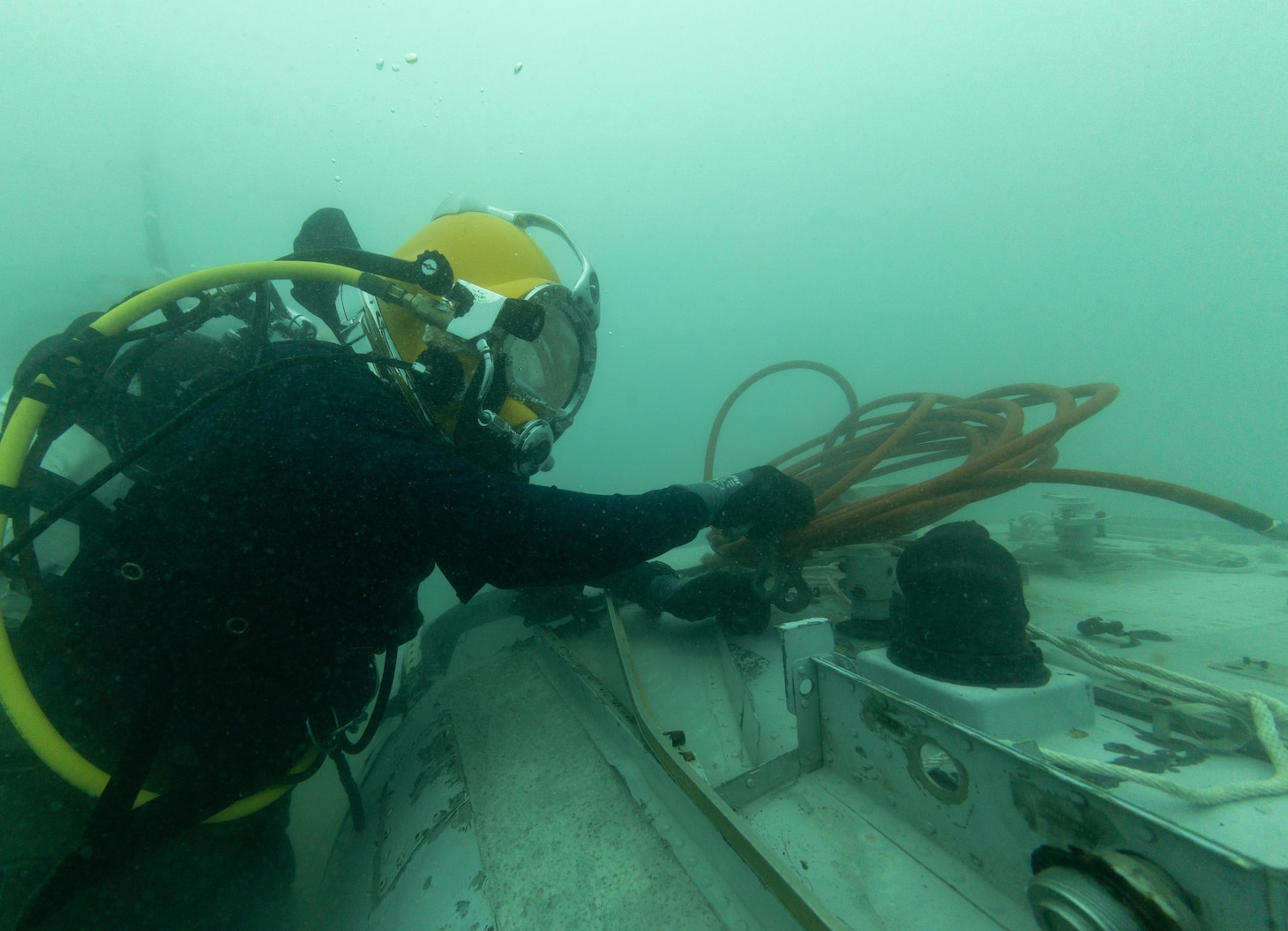Rifles with bottles, do they require the bottles to be hydro tested every five years?
You are using an out of date browser. It may not display this or other websites correctly.
You should upgrade or use an alternative browser.
You should upgrade or use an alternative browser.
Bottle guns
- Thread starter WPM
- Start date
Technically it's not required because you normally refill the rifle bottle from a scba tank or a compressor but I have read that some do have them tested for safety reasons
Upvote 0
That is a really interesting question! I do not get carbon fiber bottles hydro tested, the reason is that it has shown to be potentially harmful for the life cycle of a carbon fiber bottle.
The US Navy had requested that thier carbon fiber bottles be extended to a 30 year lifespan. They achieved this extension only because of newer technology; ultrasonic testing.
It's Non destructive and repeatable at any time during the life cycle of the bottle. it is however, more expensive than hydro testing right now but as all bottles, steel, aluminum, carbon fiber, switch over to ultrasonic testing, the price will come down.
Only one hydro test needs to be performed, the initial certification. From there on, ultrasonic testing will show any damage or stress.
The US Navy had requested that thier carbon fiber bottles be extended to a 30 year lifespan. They achieved this extension only because of newer technology; ultrasonic testing.
It's Non destructive and repeatable at any time during the life cycle of the bottle. it is however, more expensive than hydro testing right now but as all bottles, steel, aluminum, carbon fiber, switch over to ultrasonic testing, the price will come down.
Only one hydro test needs to be performed, the initial certification. From there on, ultrasonic testing will show any damage or stress.
Upvote 0
So it is more than just bottles and cylinders that need inspecting and testing.... valves and charging whips are important too.That is a really interesting question! I do not get carbon fiber bottles hydro tested, the reason is that it has shown to be potentially harmful for the life cycle of a carbon fiber bottle.
The US Navy had requested that thier carbon fiber bottles be extended to a 30 year lifespan. They achieved this extension only because of newer technology; ultrasonic testing.
It's Non destructive and repeatable at any time during the life cycle of the bottle. it is however, more expensive than hydro testing right now but as all bottles, steel, aluminum, carbon fiber, switch over to ultrasonic testing, the price will come down.
Only one hydro test needs to be performed, the initial certification. From there on, ultrasonic testing will show any damage or stress.

NAVSAFECOM Ensures Safe Diving Fleetwide
Divers across the naval enterprise will be safer, thanks in part to thorough assessments by the Naval Safety Command (NAVSAFECOM), resulting in an update to diving operations and maintenance by Naval
navalsafetycommand.navy.mil
Upvote 0
it is always good where safety is concerned - to see if you can find the actual rules and regulations documentation. After 21 years as a navy bomb disposal diver/officer i learned over and over again that rules. and regs can change quickly.That is a really interesting question! I do not get carbon fiber bottles hydro tested, the reason is that it has shown to be potentially harmful for the life cycle of a carbon fiber bottle.
The US Navy had requested that thier carbon fiber bottles be extended to a 30 year lifespan. They achieved this extension only because of newer technology; ultrasonic testing.
It's Non destructive and repeatable at any time during the life cycle of the bottle. it is however, more expensive than hydro testing right now but as all bottles, steel, aluminum, carbon fiber, switch over to ultrasonic testing, the price will come down.
Only one hydro test needs to be performed, the initial certification. From there on, ultrasonic testing will show any damage or stress.
Upvote 0
My Ataman tube has an expiration date on it, never seen that before. Never read all the writings on my bottle guns, might read them a little close now.
Upvote 0
Air tanks are usually rated by estimating how many fill/refill cycles the tank goes through, but the regulatory agencies can't determine how many times each of us fills tanks, so they take a SWAG and give the life in years. Brilliant huh? The number of cycles we put on these is relatively low. By hydro testing, they pump the tanks up to 6000 pounds which further stresses the tanks more than necessary. I really doubt that a tank will explode under normal use for a long time, if ever. As long as no one asks for a test certificate, I'll just take my chances and fill from my own compressor. If you bang and scratch your tanks, then the risk is much higher so consider that.
Upvote 0
The Alsafe CF bottles I've been using have test and manufacturer dates.
I see hydro testing as an archaic form of destructive testing. US Navy testing showed this as well and is phasing it out.
I remember all the drama when the NAVY went from steel to aluminum to fiber wrapped!
You woulda' thought those firefighters had tac-nukes strapped on thier backs, they were so frightened of the "new" tanks!
I see hydro testing as an archaic form of destructive testing. US Navy testing showed this as well and is phasing it out.
I remember all the drama when the NAVY went from steel to aluminum to fiber wrapped!
You woulda' thought those firefighters had tac-nukes strapped on thier backs, they were so frightened of the "new" tanks!
Upvote 0